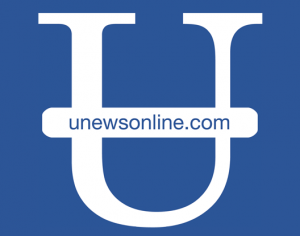For the past five decades, the sugar industry has guided the conversation about heart disease away from sugar and toward saturated fat. On Sept. 12, JAMA Internal Medicine, a peer-reviewed medical journal, released historical documents that revealed three Harvard University scientists were paid what would amount to a present-day sum of $49,000 by the Sugar Research Foundation in 1967 to assess the credibility of research on sugar, fat and heart disease.
The trade group, known now as the Sugar Association, communicated with the scientists during their review in order to craft the results. One of the scientists, Dr. Hegsted, told top sugar industry executive John Kickson that he was “well aware of [the group’s] particular interest.” Hickson looked over early drafts of the scientists’ review, which characterized sugar as weakly correlated with heart disease, and was pleased. He wrote that the drafts were “quite what [the group] had in mind.”
Research like this Harvard review have a lasting impact on society. Other scientists conformed to this review after its publication, and until recently, millions of Americans believed sugar would not adversely affect their heart health. Although the American Heart Association now warns that consuming too much added sugars increases the risk of heart disease, the studies plugged by the sugar industry have cost the scientific community credibility.
Because scientists are supposed to base their claims on evidence, when they warp results or simply make errors it makes it harder for the public to trust them. Many studies conflict, and many people do not understand reluctant to believe vaccinations are safe.
In 2015, a Pew Research study found that 68 percent of Americans believe vaccines should be required, while 86 percent of scientists from the American Association for the Advancement of Science do. In the same way that Americans might think the sugar industry promoted studies that established public trust in sugar consumption, people believe scientists have sold out to pharmaceutical companies. Websites like Organic Lifestyle Magazine describe how “our medical system abandoned its own scientific and medical ethics decades ago.”
When scientific studies jump from one conclusion to the next, trusting the process becomes difficult. Because scientists have manipulated the public before, such as when the sugar industry came calling, it becomes less of a stretch to believe scientists could be serving the interests of the pharmaceutical industry. Still, much of the distrust of scientists is not directed at the scientific method but at industry, government and scientific groups. People who distrust the majority of scientists choose to instead listen to the minority that claims vaccines are dangerous; in other words, people pick and choose their sources. When it comes to scientific beliefs, those with the greatest scientific literacy also tend to have the strongest views. Dan Kahan of Yale University found this association when he asked 1,540 Americans how great of a threat climate change is to society on a zero-to-10 scale. In this case, those with answers closer to zero or closer to 10 had a greater understanding of science.
Kahan’s study explains why people with years of education in the sciences, such as Ben Carson, refuse to believe people evolved from less-complex organisms despite the scientific community’s consensus that we did. Because of the psychological phenomenon of biased assimilation, in which we incorporate information based on our set of beliefs, people dismiss certain arguments. In the same way that highly educated people may doubt evolution, they may also doubt human-caused climate change in spite of scientific consensus. Beliefs connected to individualism may, in this case, intercept rational thought.
Humans, as a whole, are not very rational. Appeals to emotion and to authority are, at times, much more effective at convincing people. Most of us do not have the time to sift through every detail of a scientific journal article, so we trust eminent figures to do so for us.
We find ourselves in a tough position when even the scientific authorities—Harvard scientists—can be bought.
It can be easier to dismiss scientists and adopt a fatalistic view of the world; perhaps trying to make sense of things is all folly. Listening to the views of your friends, family or town leaders is much easier and takes no fact-checking.
College, fortunately, provides an experience where a reliance on friends, family and town leaders is challenged by strangers from faraway places with strange, unfamiliar views of the world. Instead of getting angry, we should listen to our peers whose views differ from ours.
What is lost in the understanding of science is that science is not a perfect answer to our problems—it is the opposite. Science is not perfect. Almost nothing can be taken without a grain of salt. Science is meant to be doubted, to be contested. Instead of losing faith in science, we should trust the method while forever questioning the validity of scientific claims.



